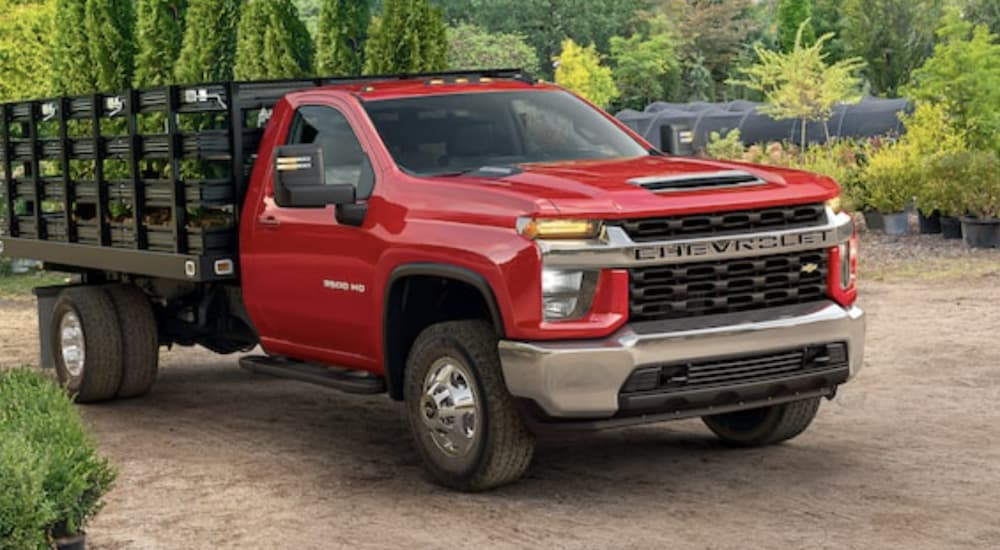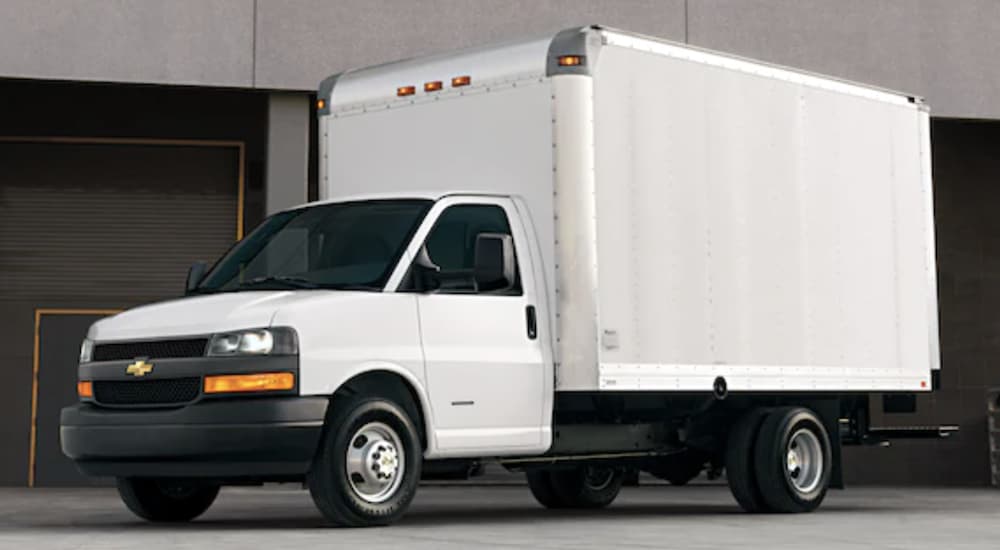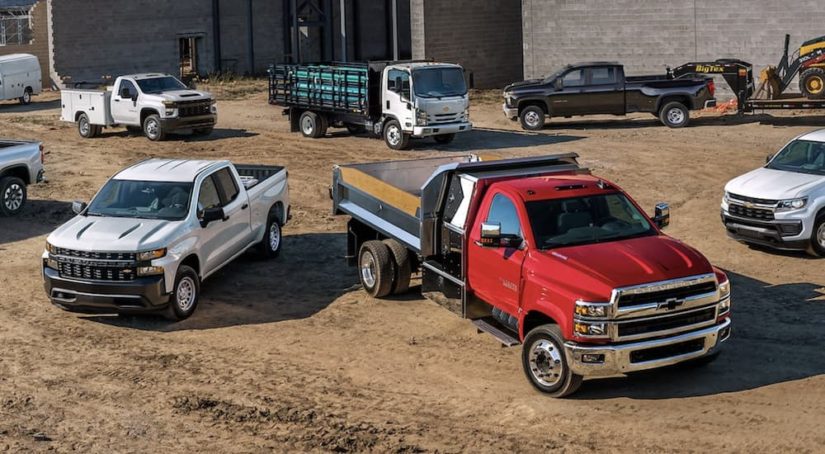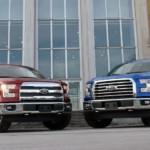Searching for a commercial truck is not easy, especially for a new business. It’s even a more daunting endeavor than searching for a personal vehicle since there’s more to consider before making a decision. A work vehicle is more than just a means of transportation. It is also a mobile representation of your company, as well as an advertisement if it’s lettered up, and it is a mobile workspace for you and your employees, a necessary tool for the services you provide, and more importantly, it is an asset for your company.
The pressure to choose wisely can seem even more overwhelming without some guidance. While the logistics of your purchase should be left up to you and the dealers who specialize in commercial truck sales, there are five important things recommended to consider before signing any paperwork at the dealership to ensure you’re making a decision that will benefit your company in the long run.
#1 Design
As a new business owner, you may not realize the number of work truck body styles available. While some companies can suffice with just the typical truck bed for commuting and carrying materials, tools, equipment, or supplies to and from the office to the worksite, others require much more from their work trucks. The truck body style that’ll be most beneficial to your company and the work you provide will depend on what you need your truck to be capable of.
Maybe you’re in the pest control industry or run a carpentry business and need extra interior storage outside of the cab for your equipment, and a truck cap for the bed of your truck may be all you need. A utility bed might also work for you if you need storage for tools or other equipment yet still need an open bed for a workspace or for hauling items you would prefer not to be in an enclosed space. Or maybe your business requires you to tow machinery with a gooseneck trailer or deliver fuel or landscaping material. In that case, you’ll need a gooseneck body, fuel body, or even a dump body. Even if you’re a mechanic looking to take your services on the road, there are truck body options available that can make your business run as efficiently as possible. While you may be able to find your company’s work truck fully designed and ready to drive off the lot, you can also purchase a truck chassis separate from the body so you can fully customize the work truck to your company’s needs.
Along with the body’s design, you’re also going to need to choose the color of your truck. Choosing the color of your personal vehicle is as simple as choosing your preferred color, but when it comes to your company’s commercial truck, there’s more to consider. Will you be lettering up the truck or putting your company’s logo somewhere on the truck? If so, you’ll want to make sure the exterior paint color works well as a background for your business logo. Are you planning on growing your business? Will the growth require a fleet of trucks in the future? In that case, you’ll want to make sure you choose a color that is easily attainable and universal since automotive brands offer specific, ever-changing paint color palettes—hence why many companies go with a simple white commercial truck.

#2 Value: Purchase Price, Operating Costs, & Resale Value
As a business owner, you are already aware that business expenses can easily add up. Purchasing a new truck is a costly expense, even if you decide to buy a used model, but also a valuable one which is why you need to factor in more than just the initial purchase price. If your company delivers goods or provides a service that requires lengthy travel, you’re going to want to choose a fuel-efficient model. Many companies choose diesel trucks for this reason, as well as their capabilities.
You will also want to research which models are reliable and affordable to maintain. The last thing your company needs is to postpone work, or worse, turn jobs down due to the truck being stuck at the shop waiting for parts that are impossible to find. Of course, this is why you should always have a backup truck, but even the repair fees alone can tally up and bring your business’s profit numbers down if there’s always something in need of repair. Basic and preventative maintenance costs with a select few unexpected repair costs are the nature of owning any vehicle, but anything more can be damaging to your company in more ways than one. Researching your options for reliable brands with commercial trucks can save you time and money in the long run.
Choosing a reliable brand can also help with the resale value of your truck. Automotive brands like Chevy and even its rival Ford are desirable brands due to their reputations for providing affordable and dependable vehicles across their lineups, including their commercial lines. These reputations help their vehicles hold their value, and since you’ll want to keep your business running without any interruptions from major truck repairs, you’ll probably end up upgrading vehicles every few years, meaning you’ll want a truck with a good resale value.
#3 Cab Configuration
Similar to if you were in the market for a personal truck, cab configuration is another feature to consider when looking for your company’s work truck. While each manufacturer may have different titles for their cab styles, the most common cab sizes are regular, extended, and crew cab variations. The regular cab is one of the most common cab styles found on commercial trucks since they are the smallest, equipped with only one row of seating which can hold at most three passengers. It is also the cheapest option. But if your company requires teams to travel together in a single truck, an extended cab or even the largest crew cab configuration may be a better option.
An extended cab can seat up to six passengers with its two rows of seating and provide interior storage space in the back seat, but it is not as roomy as the larger extended cab, which can also seat up to six passengers. Crew cabs are longer than extended cabs and typically have four full-size doors, while extended cabs may or may not have back doors at all. If they do have four doors, they may not be full-size like the front doors. Since crew cabs are the largest of the three, it is also the most expensive option.
#4 Drivetrain
Another similar feature to buying a personal vehicle that you’ll need to consider for your commercial truck is the drivetrain. While four-wheel drive may be a desirable option for your personal truck, it may not be the best option for your company’s work trucks. Sure, four-wheel drive will be beneficial for traveling on slippery roads and off-road terrain, but it also increases the purchase price and makes for a more complicated system which can increase the risk of transmission problems in the future. Two-wheel drive trucks generally get better gas mileage than four-wheel drive models, which is another factor you should keep in mind if your business requires a lot of commuting. In general, choose a drivetrain that will be the safest and the most efficient option for your company.

#5 Truck Size Classification
You may be familiar with the terms light, medium, and heavy-duty trucks. This is how most recreational trucks are classified; however, there are also class numbers that they fall under for commercial purposes. Commercial trucks are classified based on both their gross vehicle weight rating (GVWR), which is the weight of the vehicle, passengers, equipment, and cargo, and grouped by their duty. Classes 1 through 2 are considered light-duty trucks, 3 through 6 are medium-duty, and 7 through 8 are heavy-duty.
These classes are crucial for your commercial truck purchase because the higher up in class you go, the more capable your truck will be. A prime example of the differences in capabilities between classes is when comparing the Class 1 Chevy Colorado, which for the 2022 model year is rated for a maximum GVWR of 5,800 lbs, versus Chevy’s heaviest truck, the Class 6 Silverado 6500 HD, which for the 2021 model year is rated for a maximum GVWR of 23,500
Choose Your Work Truck Wisely
Deciding on a commercial truck for your business can be a heavy choice to make. Not only are the company’s daily operations at stake with your truck choice, but so are your employees and the future of your company, which is why you shouldn’t take the job lightly. Choosing the right body style, exterior paint color, cab configuration, drivetrain, and truck classification, at an affordable price from a brand you can trust and rely on should all be considered before making any final decisions with a dealer that specializes in commercial truck sales. If the correct preparation is made, you will easily be able to find a commercial truck that is perfect for your business.



